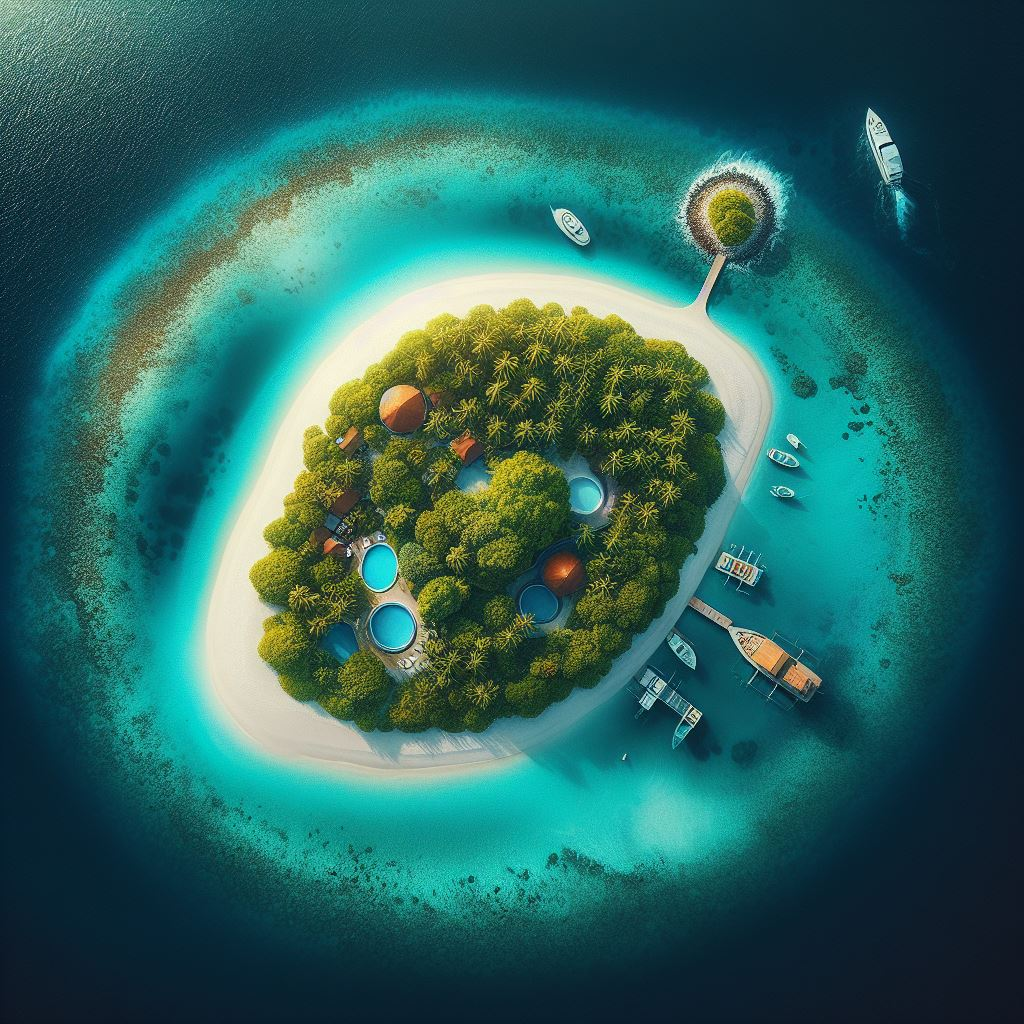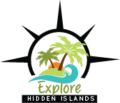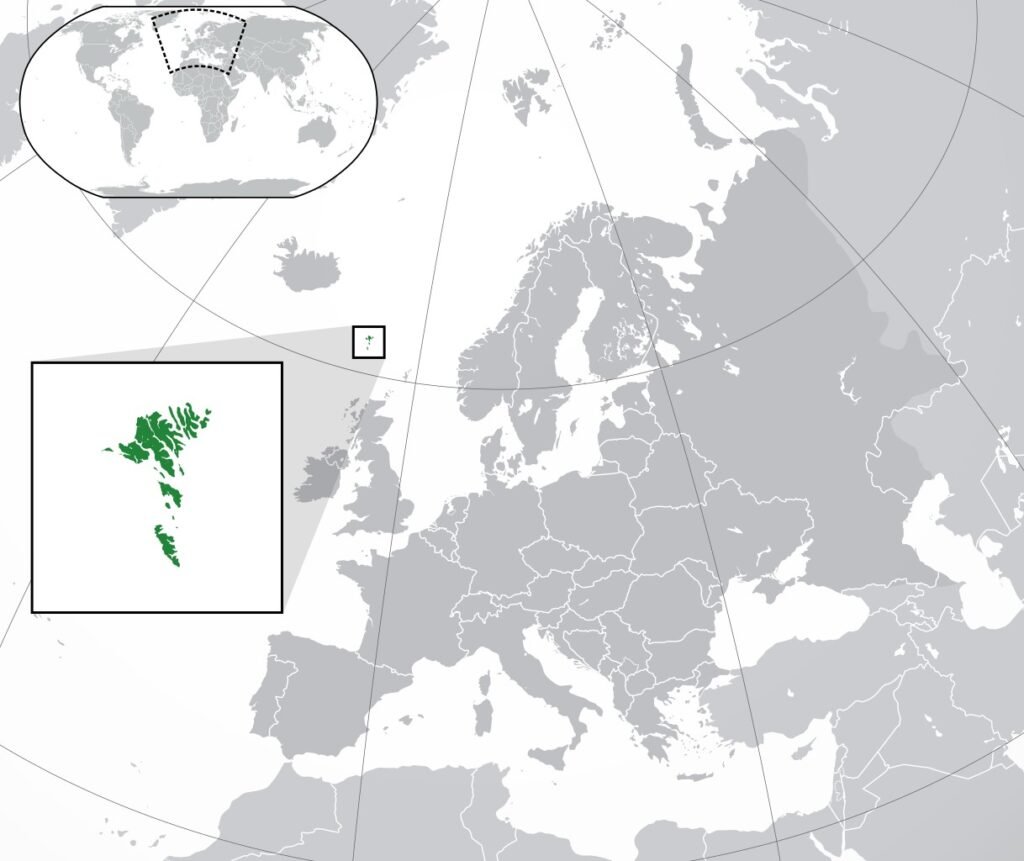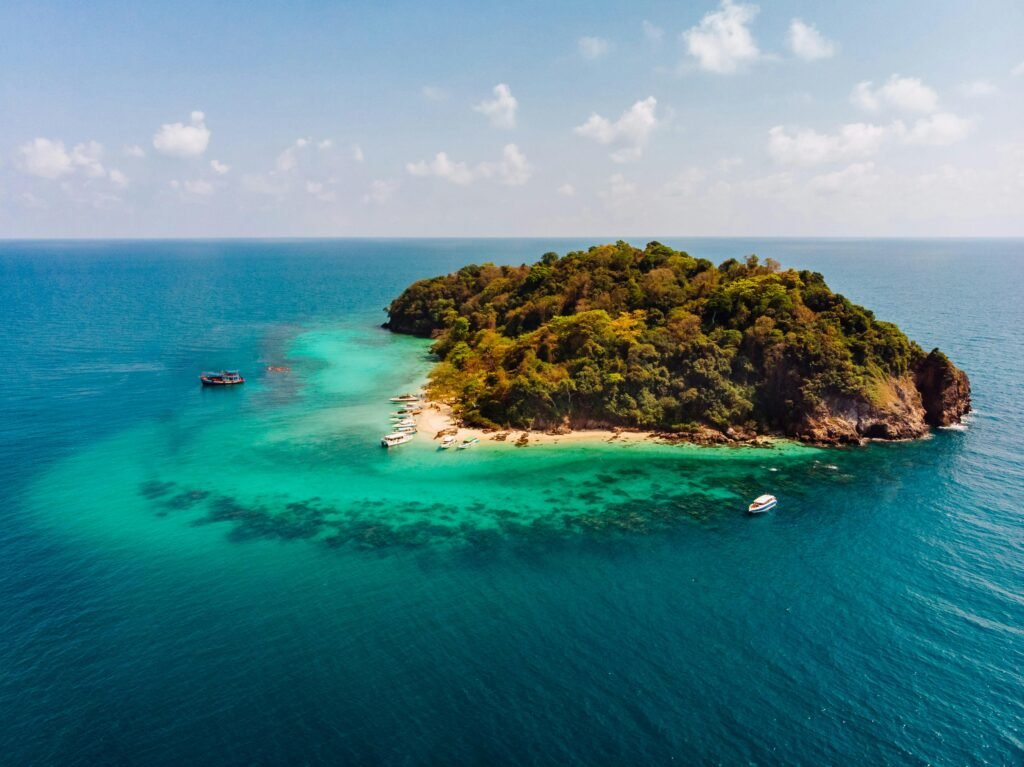Hidden islands hold a special allure – they are pockets of the world shrouded in mystery and brimming with the potential for the extraordinary. It’s no wonder these isolated gems have ignited the imaginations of writers for centuries. Throughout famous literature, hidden islands have morphed into stages for adventure, self-discovery, and chilling untold stories. From the iconic Treasure Island to the unsettling Shutter Island, countless fictional worlds are inspired by real-life islands. Let’s embark on a journey and explore how these hidden islands inspired some of the most beloved stories ever told.

Islands – Natural Muses for Writers
Islands possess an inherent magic that makes them irresistible to storytellers. Their very isolation creates a sense of a world apart, a microcosm where the rules of everyday life might bend or break entirely. Surrounded by the vastness of the sea, islands become self-contained ecosystems, potential hotbeds for unusual flora and fauna, which can spark a writer’s imagination. Additionally, islands hold a rich symbolism; they can represent escape, sanctuary, imprisonment, or a stark confrontation with the unknown forces of nature.
Famous Examples of Hidden Islands in Literature
Let’s dive into some of the most iconic examples of literary islands and how authors have shaped them into unforgettable settings:
Treasure Island (Robert Louis Stevenson):
The quintessential pirate island, Treasure Island, springs to mind almost instantly when we imagine hidden islands in literature. When crafting his treasure map, Robert Louis Stevenson likely drew from several real-life Caribbean islands. The enduring popularity of Treasure Island gave us enduring pirate tropes like “X marks the spot,” peg legs, and talking parrots.
The Island of Doctor Moreau (H.G. Wells):
Wells transforms his isolated island into a disturbing laboratory where the ethical boundaries of science are shattered. Its remoteness amplifies the horror of Moreau’s experiments and raises questions about humanity’s control over nature. There’s a fascinating link to natural islands, which, due to their isolation, often house unique and sometimes startling hybridized animal species.
Lord of the Flies (William Golding):
Lord of the Flies, the island becomes a stark stage to explore the potential darkness lurking within human nature. The loss of adult authority and constraints pushes a group of schoolboys towards savagery. Golding’s island forces us to consider whether civilization is merely a fragile veneer, a concept that makes for a deeply unsettling read.
Shutter Island (Dennis Lehane):
Lehane crafts a haunting psychological thriller set on a bleak island housing a hospital for the criminally insane. The island’s isolation amplifies the protagonist’s paranoia and blurs the lines between delusion and reality. The author likely drew inspiration from natural islands that once held isolated prisons or asylums, places with chilling histories.
The Mysterious Island (Jules Verne):
This classic tale transforms an island into a castaway’s haven, brimming with hidden resources and a mysterious guiding hand. The island echoes real-world survival stories of those stranded in remote places, tapping into the human instinct to overcome and adapt. Verne’s enduring fascination with scientific possibility and exploration shines through as the island gradually reveals its unknown stories.

Beyond Famous Examples
The literary world is brimming with captivating hidden islands far beyond the most widely recognized examples. As a reader, it’s gratifying to discover these lesser-known gems. Consider these thought-provoking prompts:
- Think of your own favorite books featuring islands.
What makes those islands so memorable? Is it their atmosphere, the characters they hold, or the central mystery they represent?
- Research authors who were themselves islanders.
Their real-life experiences will likely infuse their fictional islands with a unique authenticity.
- Discover books set on islands you find intriguing.
There are novels on the windswept Scottish isles, sun-kissed Mediterranean islands, or volcanic islands teeming with unique life.
Can You Visit Islands That Inspired Famous Literature?
This question torments both readers and travelers alike! The answer is complex and fascinating:
- Some fictional islands are entirely products of the author’s imagination. Trying to find the ‘real’ Island of Doctor Moreau would be futile.
- Other islands are heavily based on real places, though often given a fictionalized name. Many scholars pinpoint specific Caribbean islands as the likely inspirations behind Treasure Island.
- We can find islands that echo the atmosphere of our favorite literary ones. Even if we don’t find where Captain Flint buried his gold, exploring remote islands with rainforests, hidden coves, and perhaps even the odd squawking parrot can give us a taste of that same sense of thrilling adventure.
The Power of Real and Imagined Islands
Islands, whether they spring entirely from an author’s mind or take root in reality, hold extraordinary storytelling power. Beyond acting as mere backdrops, they become extensions of the plot and powerful symbols within the narratives. Islands in literature often represent themes like:
- Exploration and the unknown: Confronting the mysteries of a hidden island mirrors the act of delving into a captivating story.
- Human limits: Characters tested by the harsh conditions of island life reveal their true nature.
- Escapism and transformation: Islands can be places to escape the past or reinvent oneself entirely.
Conclusion
From buried pirate gold to disturbing scientific experiments, hidden islands have fueled our imaginations for centuries. They serve as captivating literary settings because they represent the unknown, the potential for adventure, and the possibility of encountering the extraordinary. Whether they exist purely in the pages of a book or echo with whispering hints of a natural counterpart, the allure of hidden islands remains undeniable.
As you embark on your next literary journey, be mindful of the island settings you encounter. Consider what unrevealed things they hold, what themes they illuminate, and what lingering questions they leave in your mind. The ability of a fictional island to spark curiosity and ignite a sense of wonder mirrors the enduring power of great literature itself.
FAQs
Let’s add a FAQ section to address some common questions readers might have:
Q: Are all literary islands fictional?
A: No! While many authors invent islands, others draw inspiration from real-world locations, sometimes even visiting them for research and then changing specific details to suit their story.
Q: Why are islands such popular settings in fiction?
A: Islands offer a sense of isolation, self-containment, and potential for the unusual. They become microcosms where authors can explore themes of survival, human nature, and the boundaries of reality.
Q: Can literary islands influence real-world travel?
A: Absolutely! Books set on islands can spark a desire to explore similar places, whether the exact fictional location or islands that offer a comparable atmosphere.
Q: Where can I find books featuring islands?
A: Explore online resources, ask for recommendations at your local bookstore, or search for lists like “Top Island Fiction” to find new titles tailored to your interests.
Q: Are islands only featured in adventure stories?
A: Not at all! Islands appear across various genres, including fantasy, mystery, romance, and historical fiction.


